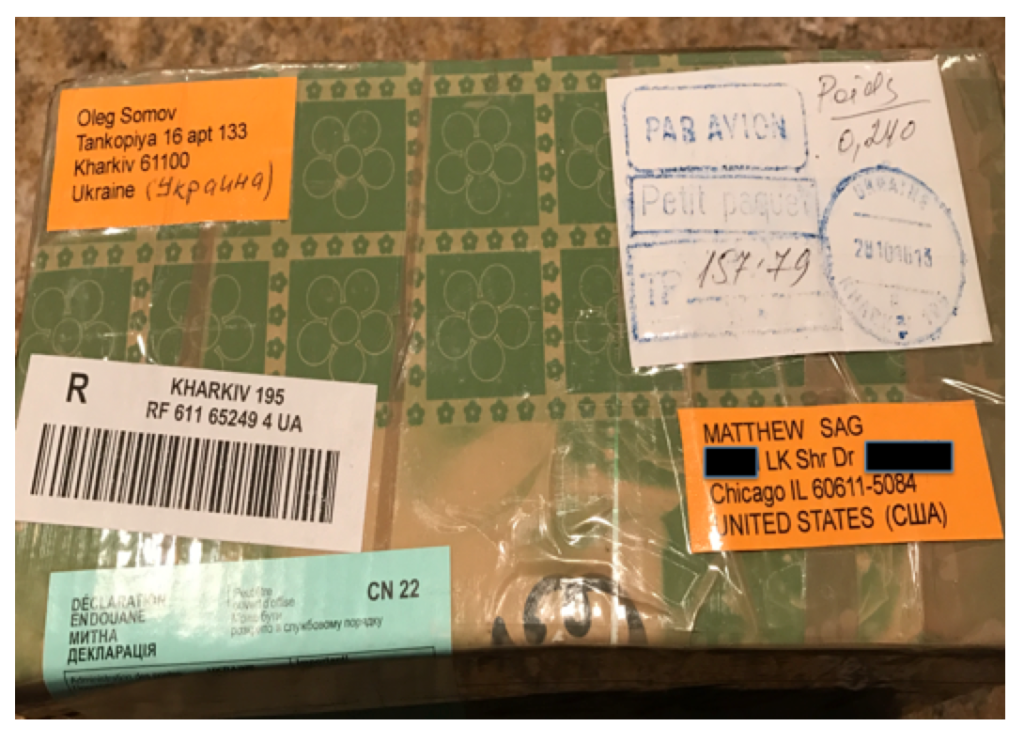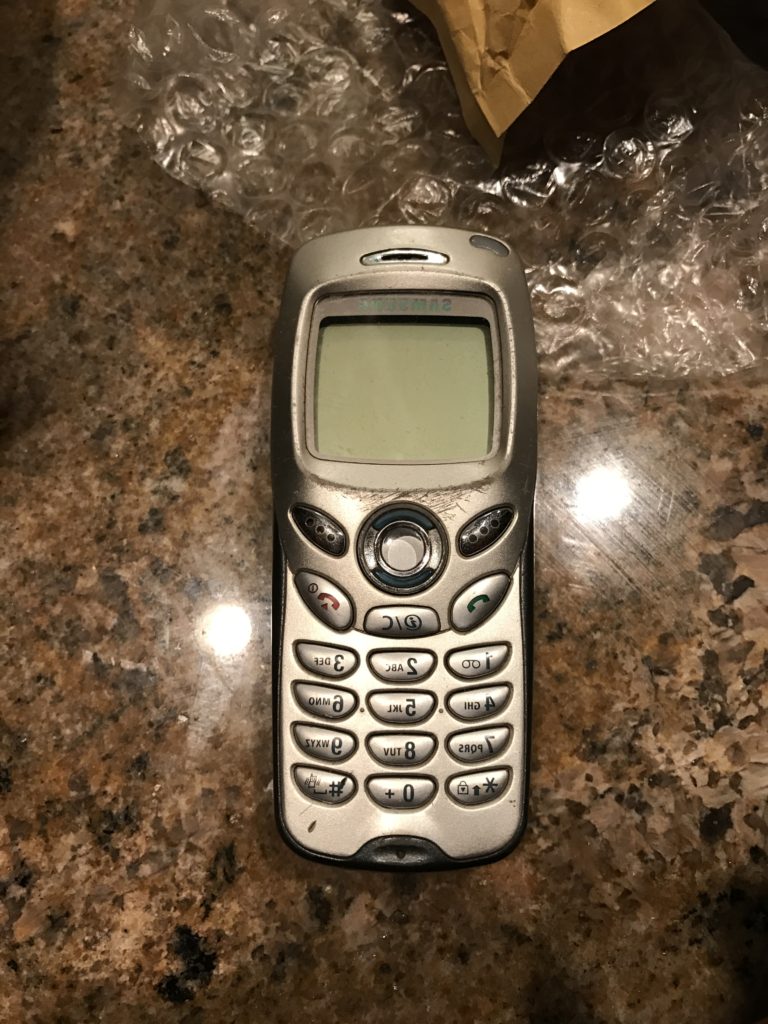If you live in an economy where officials are corrupt, contracts are hard to enforce, and trust is scarce, everyday transactions are burdensome and time-consuming. If you don’t want to get scammed, you either deal with people you know, people your relatives know, or you deal with repeat players who have an interest in their reputation. Lack of trust makes market small and transaction costs high. The wonderful thing about eBay when it first arrived was that it freed so many people from the tyranny of small markets. eBay provided a marketplace where trust was built on reputation and feedback and the size of markets was only constrained by the cost of shipping. Recently, however, eBay has reengineered its services so that buyer trust is based on a seemingly absolute guarantee that the seller will always lose in any dispute.
No one should be surprised that unscrupulous buyers use eBay to commit fraud on unsuspecting sellers. What surprised me was the extent to which eBay now facilitates this fraud through its “buyer protection program”. In October this year I listed a very slightly used iPhone 6S for sale on eBay and was quite satisfied when it eventually sold for $465. This satisfaction was short-lived, however, as I came to realize that I had been taken in by an eBay scammer.
I shipped the iPhone on October 17 via UPS almost immediately after receiving full payment in my PayPal account. I had the money, so I assumed everything was going to be fine. Everything was not fine. The buyer waited a few days after receiving the package and then fabricated a disagreement claiming that the phone was damaged and not as described. The delay and the his outlandish claims made me suspicious, but I offered to refund 5% of the value of the transaction just to make him go away and preserve my good seller reputation.
The seller immediately rejected my refund offer and made a return request. I am not completely naïve. I don’t accept payment by check or Western Union and I don’t accept returns. So I was pretty surprised to find out that eBay could force me to accept a return request – eBay explained that my options were to refund the buyer and let him keep my phone or approve the return request. Grudgingly, I accepted the return. On November 2, eBay instructed me to refund the buyer when the return was delivered. On November 4, eBay invoiced to me $46.53 for the listing and sale, which I paid.
Occasionally you might read the description “suspicious looking package” in the media wondered what exactly makes a package look suspicious? It looks like this:
On November 14, I received this package from the Ukraine with a customs declaration describing the contents as “phone”. Given that I had shipped the phone to an address in Delaware and that my address on Lake Shore Drive was written as “LK Shr Dr” I was immediately suspicious. The phone that I received to replace my mint condition gold iPhone was a beaten up old Samsung (I didn’t even know Samsung made phones like this – it looks almost exactly like an old Nokia that I had in 2002).
The same day the bogus return arrived, I received an instruction from eBay commanding me to issue a refund. At this point I knew with absolute certainty that there was no way I was going to win this fight. I didn’t understand how but it was obvious that the seller had gamed this through to the end. That he knew how to play the system was evidenced by the fact that his bogus return arrived just one day too late for me to revise my review and warn others not to do business with the user called plasmacompany.
On November 18, more out of curiosity than anything else, I entered into the bizarro world of online dispute resolution and opened up a case with eBay. I explained that the buyer had returned a worthless 10-year-old phone in exchange for the mint condition iPhone 6 I had sold. I offered to provide pictures.
On November 25, eBay “resolved” this case in favor of the buyer with the following explanation.
- “The item has been delivered to you.” A lie.
- “eBay Customer Service is refunding the buyer and debiting your PayPal account for reimbursement.” Actually the money is still in my PayPal account.
- “We understand how frustrating it is that the items condition changed …” 1. I sincerely doubt that they do understand. 2. “Changed” does not really do it justice when an iPhone 6S magically transforms into a beaten up old Samsung from the early 2000’s. 3. There should be an apostrophe after item (item’s condition).
- “… but, unfortunately, we didn’t receive proof that the buyer caused the issue.” Well, of course eBay did not receive any proof, eBay is entirely uninterested in allowing you to submit proof of buyer fraud.
On November 26 I attempted to appeal this decision. This involves calling eBay, a Kafkaesque experience I can’t honestly recommend. The initial telephone message I received told me that the buyer had appealed and that no action was required of me at this time. Utterly confused, I kept at it until I was able to speaking to an actual person who then explained to me that because eBay does not handle the item directly they have no way of knowing who is telling the truth. A fair point, except that my shipping documents prove that I sent an iPhone (I used UPS pack and ship) and the return documentation simply says “phone” and was shipped from overseas. These two facts alone are incredibly suspicious. The eBay representative offered to connect me with a risk management team, but my call was simply routed back to customer service who transferred me to the appeals department. The notes I took at the time say “this feels like a shell game” and nothing since has altered my view.
I did get to speak to someone in the appeals department eventually and she told me that they could not grant an appeal because they had no proof. But of course, everything about this process is designed so that you have no chance to submit any proof. They did offer that I could report the buyer and that the buyer would be investigated. I did, but I doubt anything will ever come of it.
I had assumed that eBay would simply take the money from my PayPal account, but they don’t seem to have the power to do that. (I upgraded all my passwords after the election at the urging of my more security conscious friends.) So, eBay continues to insist that I pay my “eBay money back guarantee case” and they have helpfully suggested that I should add my reimbursement payment method to my personal information. Hah! Fat chance that I am every letting eBay near my PayPal account again.
eBay maintains that as a seller, I agreed to permit them to make a final decision in their sole discretion on any case the buyer opens with eBay under the eBay money back guarantee policy. I have no recollection of making this agreement, this is not a term I would have agreed to knowingly, and I have seen no evidence that I made such an agreement. I’m beginning to suspect that eBay is not being entirely straightforward here.
The slightly tangential way eBay describes things makes me think that they don’t think I have a legal obligation to defraud myself either. My account balance as of December 2, 2016 was $0, even at the same time that eBay is demanding a payment of $465.26. I tested this by trying to make a payment of $0.01 into my account.
If I really owed them this money, wouldn’t they reflect it in my account balance? Maybe this is just paranoia, but when an organization you used to trust takes the side of the fraudsters and the con-artists you begin to question everything they say.
I did not agree to accept returns for the sale when I listed the item. I don’t recall agreeing to eBay’s unilateral money back guarantee system. I suspect that I never agreed and that eBay is trying to confuse me into paying for a fraudulent refund. eBay is misleading sellers like me who would find a another marketplace rather than participate in one where they will be forced to accept returns and grant refunds in the face of transparent fraudulent activity.
eBay is an enormous company with over $8 billion in revenue a year, so naturally it’s difficult to talk to anyone there who is not a computer (or a human whose responses are so routine and uncomprehending that they may as well be a computer). I figure that if I continue to ignore their demand for payment things might eventually escalate to the point where I get to speak to an actual human.
For the record, the buyer was using the name “plasmacompany” on eBay but according to PayPal he or she is really Vadim Grebenyk (Vadex1960@gmail.com) doing business as ITG EXPRESS, with a shipping address of 78 McCullough Dr # 11051, New Castle, DE 19726-2079, United States. According to eBay, the buyer’s name is Dmitriy Dubogray. Same company and address. There may be a real Vadim, or Dmitriy or ITG Express whose names have been appropriated by some fraudster. If so, sorry to drag you into this.





One Reply to “One More Sign World Is Shrinking – eBay is for Suckers”
Comments are closed.